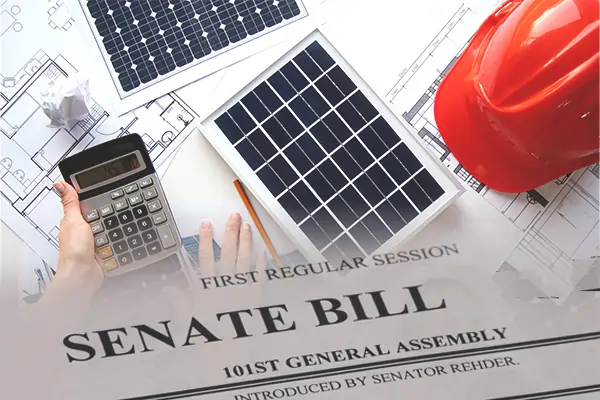New bill replaces clean energy incentives with taxes, drawing criticism from environmentalists and industry.
The most recent version of the Senate's massive spending bill, which is being rushed to the floor for a vote, would have far-reaching implications for the future of renewable energy in America. The bill proposes to repeal long-standing wind and solar project tax credits that have spurred clean energy growth since 2005. The renewable energy tax incentives introduced through the Inflation Reduction Act (IRA) were initially set to continue supporting renewable energy projects, but with the new bill, they will be repealed as soon as they become effective. Instead, the bill suggests a new solar and wind project tax that is to be introduced starting in 2028, unless they can certify that they are not employing Chinese components. The bill also includes a new tax credit for coal mining.
The impact of the Senate bill on the clean energy sector has been widely denounced by environmentalists and the renewable sector. They argue that it will make American families pay more for energy, reduce America's pace to keep up with rising electricity demand, and hold back the transition to green power when the world is attempting to fight climate change. Critics also contend that the bill's provisions risk making American competitiveness in energy and technological markets worse, particularly when countries such as China are also leading in clean energy and electric vehicle technologies.
Even high-profile opposition like that of Elon Musk has taken a sharp stand against the bill. Musk, who is keen on clean energy through his companies like Tesla, decried the bill as "utterly insane and destructive," saying it would destroy millions of jobs and hurt the economy by favoring old-style industries over innovative solutions like clean energy.
In the meantime, though, Republicans and critics of clean energy argue that the renewable energy sector no longer requires subsidies and that this phase-out will help the country transition toward a more market-driven energy landscape.
.webp)










.webp)































.webp)
